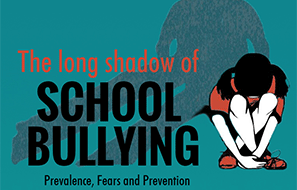Innovative course aims to nurture strategic talent
An experimental new course aimed at nurturing bilingual or multilingual talent, with a focus on the humanities, has been launched at China's prestigious Tsinghua University.
The Foreign Languages and Literatures Department's world literatures and cultures experimental course, which is supported by the Tsinghua Institute for World Literatures and Cultures, started recruiting students in September last year.
Its aim is to reform how English majors are traditionally taught at Chinese universities, which typically involves improving students' reading, writing, speaking, listening and translating abilities, while equipping them with a basic knowledge of literature and linguistics in English-speaking countries.
In addition, students are usually taught the basics of a second foreign language, such as Japanese, French, Spanish, German or Russian, equipping them to work in a wide range of fields, from education to tourism and trade.

The experimental course at Tsinghua, however, has a more ambitious goal: producing strategic, interdisciplinary talents who are highly proficient in one or several foreign languages and have a deep understanding of literature, history and philosophy, both ancient and modern, in China and abroad, according to Yan Haiping, chair of the department.
To achieve this goal, Yan, who also serves as dean of the Institute for World Literatures and Cultures, said the department's best young teachers have been assigned to teach the basic language courses, while world-class scholars from Tsinghua's other departments and abroad have been invited to lecture on humanities.
Lecturers also include fellows in residence from the Tsinghua-Michigan Society of Fellows, which is a selective program for recent PhD recipients set up by Tsinghua and the University of Michigan in the United States.
The course's curriculum is a combination of that offered by humanities departments at other Chinese universities and courses for English majors at universities in Europe and the US, said Chen Yongguo, a senior scholar who leads the class.
He added that students in the experimental class start early - in the beginning of their freshman year - learning the literary classics of China and Western countries.
"This is a much higher starting point than that of any other foreign language major in China," he said.
Yan said many of the students who were on the course - 10 in the first cohort and 15 in the second - had been recommended by renowned domestic foreign language high schools, and all had passed the exams and interviews organized by Tsinghua University.
"We have been looking for intelligent young people with broad vision and outstanding talent for learning languages, and we are delighted that the students we have recruited perfectly meet these requirements," Yan said, adding that many had already mastered two or more foreign languages, even before starting the course.
She said there would be opportunities to study at other prominent higher education institutions around the world as part of the intensive four-year course and that students would be in line for a promising and challenging job upon their graduation.
"Although there are still two years to go before the first cohort graduate, some ministries, commissions and strategically positioned companies have already started inquiring about them," Yan said.
zhaoxinying@chinadaily.com.cn





















